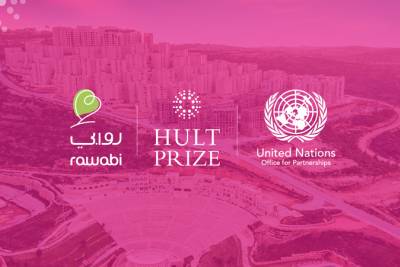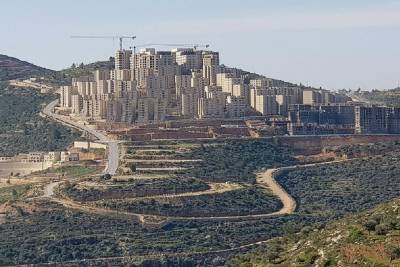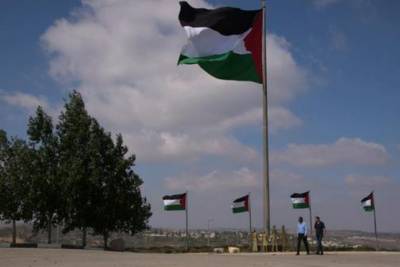The Palestine I’d want to live next to
JWeekly - SUE FISHKOFF - Ghadeer Khoury stood at the lip of a huge construction pit in the new West Bank city of Rawabi, smiling so hard she didn’t seem to care that her stiletto heels were teetering dangerously close to the edge.
“I am very, very proud to be a part of this project,” the 27-year-old Palestinian civil engineer said. “I believe myself and my colleagues are creating history. We are building our own city, relying on ourselves.”
Khoury, who recently completed her master’s at Tel Aviv University and speaks flawless English, is employed by the billion-dollar Rawabi project, which, like her, is the face of the new Palestine. The planned city is the biggest project in the West Bank and it deserves our support, because it represents a strong economic future for a people who now have anything but. And peace without a stable economy on both sides of the border is not sustainable.
The vision of Palestinian entrepreneur Bashar Masri, Rawabi, when it’s completed in the next few years, will house 40,000 residents in the world’s first modern Palestinian city. (Sorry, Ramallah.) The first 640 units were finished early this summer, just before my visit, and they rise like white towers against the bright blue sky, row upon row of Jerusalem stone punctuated with balconies and large windows.
Khoury took our group past another construction zone, pointing to where the massive shopping center will be built, along with a cultural center, playground, school, spa, luxury hotel and seven cinemas. “4-D, not 3-D,” she announced. Power lines will all be underground, and there will be citywide Internet. A light industrial zone will provide jobs in high-tech and research; an amphitheater will seat 20,000.
There is nothing like this anywhere in the West Bank — or Gaza, but that’s just punching a dying man. Rawabi looks like an upscale Israeli city. That’s no accident — it was modeled on Modi’in, a 20-minute drive away.
High-profile folks from all over have flocked to Rawabi’s high-tech visitor’s center, where dioramas and an animated video showcase the good life the city’s future residents will enjoy. As I watched the video, I noticed that the figures all wore Western dress. Just two hijab-wearing women in five minutes of film.
That also is no accident, Masri told me. “From the beginning, we made it clear that Rawabi will be a secular city,” he said. That’s unusual, as Palestinian society is very traditional. Most West Bank cities and villages are either Muslim or Christian. Rawabi will have a mosque and two churches, signaling that adherents of both faiths are welcome, and neither is in charge.
The target residents of Rawabi are two-career couples, Masri said. The units are priced from $60,000 to $200,000, which is high for the West Bank, so the project introduces yet another new thing to Palestinian society: mortgages. (Welcome to our world.)
“This project offers better homes for our people,” Masri said. “We are educated, we are Internet-savvy, we know what better homes look like. Our universities are pumping out graduates, and we want people to be able to buy homes early in their careers.”
Rawabi has gotten a lot of press, most of it glowing. But there has been some backlash in the Arab world, charges of cultural imperialism and whatnot.
Writing for the online Al-Monitor, Palestinian journalist Ahmad Melhem criticized the project’s Western-style architecture, which, he wrote, “does not reflect Palestinians’ cultural heritage or struggle.” (I know I’d like my architecture to reflect my political struggle.) And the involvement of Israeli consultants could, he warned, lead to “normalization.” Which is, apparently, to be avoided.
Now I’m as opposed to cultural imperialism as the next midcentury revolutionary. But this ain’t that. This is about building lovely, affordable homes in a planned city where quality of life is a priority. It’s a city built by Palestinians for Palestinians — you have to have Palestinian citizenship to buy there.
And by the way, while he’s all for peace with Israel, Masri is no fan of the Israeli military presence in his homeland. He wants it to end, and quickly. “It’s not good for us, and it’s not good for them,” he said.
“This project is not about accepting the occupation or making it look good,” he said. “But we don’t have to wait until it ends to begin living our lives.”
To view original article, Click Here.



